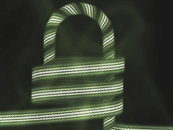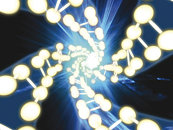qubit
Overclocked quantum bit
- Joined
- Dec 6, 2007
- Messages
- 17,865 (2.78/day)
- Location
- Quantum Well UK
| System Name | Quantumville™ |
|---|---|
| Processor | Intel Core i7-2700K @ 4GHz |
| Motherboard | Asus P8Z68-V PRO/GEN3 |
| Cooling | Noctua NH-D14 |
| Memory | 16GB (2 x 8GB Corsair Vengeance Black DDR3 PC3-12800 C9 1600MHz) |
| Video Card(s) | MSI RTX 2080 SUPER Gaming X Trio |
| Storage | Samsung 850 Pro 256GB | WD Black 4TB | WD Blue 6TB |
| Display(s) | ASUS ROG Strix XG27UQR (4K, 144Hz, G-SYNC compatible) | Asus MG28UQ (4K, 60Hz, FreeSync compatible) |
| Case | Cooler Master HAF 922 |
| Audio Device(s) | Creative Sound Blaster X-Fi Fatal1ty PCIe |
| Power Supply | Corsair AX1600i |
| Mouse | Microsoft Intellimouse Pro - Black Shadow |
| Keyboard | Yes |
| Software | Windows 10 Pro 64-bit |
Harnessing The Power of the Qubit For Totally Secure Cloud Computing


Researches at the Vienna Center for Quantum Science and Technology (VCQ) at the University of Vienna and the Institute for Quantum Optics and Quantum Information (IQOQI) carried out the experiments and their results will be published in a forthcoming issue of Science magazine.
Picture Explanations
The lock: The image shows multiple superimposed strings of data encoded in such a way that the quantum computation can be performed on a remote server, while still securely encrypted (Credit: Equinox Graphics).
The qubits: The image shows clusters of entangled qubits, which allow remote quantum computing to be performed on a server, while keeping the contents and results hidden from the remote server (Credit: Equinox Graphics).
View at TechPowerUp Main Site
This amazing and intriguing statement has appeared in a press release from the University of Vienna. With regular "classical" computing, information can be encrypted in a secure manner. However, the servers operating the cloud aka the data centre, by definition have to know what the data is that they're working on or holding. This means that a rogue admin could snoop on their customer's private data. However, the properties of quantum physics allow a quantum computer to be oblivious of the contents of the data that it's processing and this feat is called "blind quantum computing", which is unachievable with a classical computer. So, how exactly does this work? The press release says it best:Researchers have succeeded in combining the power of quantum computing with the security of quantum cryptography and have shown that perfectly secure cloud computing can be achieved using the principles of quantum mechanics. They have performed an experimental demonstration of quantum computation in which the input, the data processing, and the output remain unknown to the quantum computer.


Of course, the somewhat bold 'totally secure' claim must be taken from a slightly sceptical viewpoint. The physics may indeed be able to ensure complete security, but it's always possible that something about the physical implementation may allow a hacker to intercept messages or read stored data. This is not just theoretical, either. Entangled photons are currently used in commercial security solutions to send data down fibre optic cables. However, it has been shown that blinding the detectors with strong light in a particular way can confuse them, which allows a window of opportunity for the hacker to intercept data. There's always the possibility of some vulnerability like this being present here and if experience by computer security experts is anything to go by, there's no such thing as total security. A weakness will be found eventually.The process works in the following manner. The user prepares qubits - the fundamental units of quantum computers - in a state known only to himself and sends these qubits to the quantum computer. The quantum computer entangles the qubits according to a standard scheme. The actual computation is measurement-based: the processing of quantum information is implemented by simple measurements on qubits. The user tailors measurement instructions to the particular state of each qubit and sends them to the quantum server. Finally, the results of the computation are sent back to the user who can interpret and utilize the results of the computation. Even if the quantum computer or an eavesdropper tries to read the qubits, they gain no useful information, without knowing the initial state; they are "blind."
Researches at the Vienna Center for Quantum Science and Technology (VCQ) at the University of Vienna and the Institute for Quantum Optics and Quantum Information (IQOQI) carried out the experiments and their results will be published in a forthcoming issue of Science magazine.
Picture Explanations
The lock: The image shows multiple superimposed strings of data encoded in such a way that the quantum computation can be performed on a remote server, while still securely encrypted (Credit: Equinox Graphics).
The qubits: The image shows clusters of entangled qubits, which allow remote quantum computing to be performed on a server, while keeping the contents and results hidden from the remote server (Credit: Equinox Graphics).
View at TechPowerUp Main Site
Last edited:







 Mainly it was an assignment explaining the pros and cons of quantum computing, how it works, reasons why it should be implemented over classical computing etc. It was a good thing I had good knowledge of classical computing otherwise it could've been A LOT harder.
Mainly it was an assignment explaining the pros and cons of quantum computing, how it works, reasons why it should be implemented over classical computing etc. It was a good thing I had good knowledge of classical computing otherwise it could've been A LOT harder.